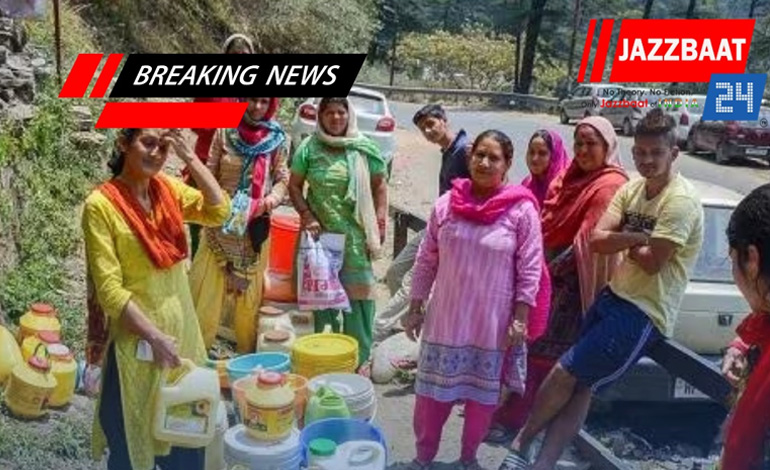Introduction:
In Handwara, a town in the Indian-administered region of Kashmir, a recent water shortage has sparked protests and unrest among the local population. The scarcity of water, a basic necessity of life, has exacerbated the hardships faced by the residents, leading to public outcry and demonstrations. In this blog, we will delve into the causes of the water shortage, the impact on the community, and the urgent need for authorities to address this critical issue.
The Water Crisis in Handwara:
Handwara has been grappling with a severe water shortage, with residents facing acute difficulties in accessing clean and potable water for their daily needs. The scarcity has been attributed to a combination of factors, including a decrease in the water table, inadequate infrastructure, and mismanagement of water resources. The situation has been further aggravated by a lack of regular maintenance and repair of water supply systems, leading to leakages and wastage.
Protests and Public Outcry:
Frustrated by the persistent water shortage, residents of Handwara have taken to the streets in protest. The demonstrations, characterized by slogans and placards demanding immediate action, reflect the desperation and anger of the community. The protests have disrupted normal life, highlighting the gravity of the situation and drawing attention to the pressing need for a resolution. Local leaders, activists, and civil society organizations have also joined forces to amplify the voices of the affected population.
Impact on the Community:
The water crisis in Handwara has had far-reaching implications for the residents, particularly vulnerable groups such as women, children, and the elderly. The lack of access to clean water jeopardizes hygiene, sanitation, and overall health. People are forced to rely on alternative and unreliable sources, increasing the risk of waterborne diseases and compromising their well-being. Additionally, the scarcity of water hampers agricultural activities, impacting the livelihoods of farmers and exacerbating economic hardships.
Urgent Need for Action:
The water shortage in Handwara demands immediate attention and action from the concerned authorities. It is crucial to address the underlying causes of the crisis and implement sustainable solutions. This includes investing in infrastructure development, improving water management practices, promoting water conservation measures, and ensuring regular maintenance of water supply systems. Moreover, community engagement and participation should be prioritized to foster a sense of ownership and collective responsibility in managing water resources.
Collaborative Efforts and Solutions:
Resolving the water crisis in Handwara requires a collaborative approach involving government bodies, local administration, civil society organizations, and the affected community. It is imperative to establish a coordinated response mechanism that focuses on short-term relief measures while implementing long-term strategies for water sustainability. This may involve the introduction of rainwater harvesting systems, water treatment plants, awareness campaigns on water conservation, and the involvement of experts and researchers in finding innovative solutions.
Conclusion:
The water shortage in Handwara has ignited protests and unrest, highlighting the urgent need for action to address this critical issue. The impact on the community, especially in terms of health, hygiene, and livelihoods, cannot be ignored. By prioritizing water management, investing in infrastructure, and involving all stakeholders, authorities can work towards resolving the crisis and ensuring access to clean and reliable water for the people of Handwara. Swift and effective measures are essential to alleviate the suffering of the residents and restore their faith in the administration's ability to fulfill their basic needs.
